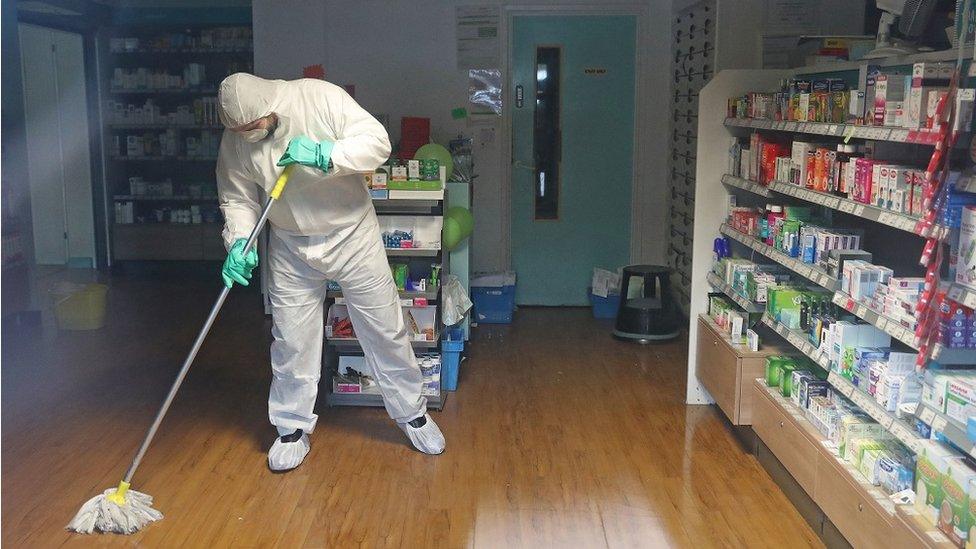Coronavirus: Ninth case found in UK
- Published
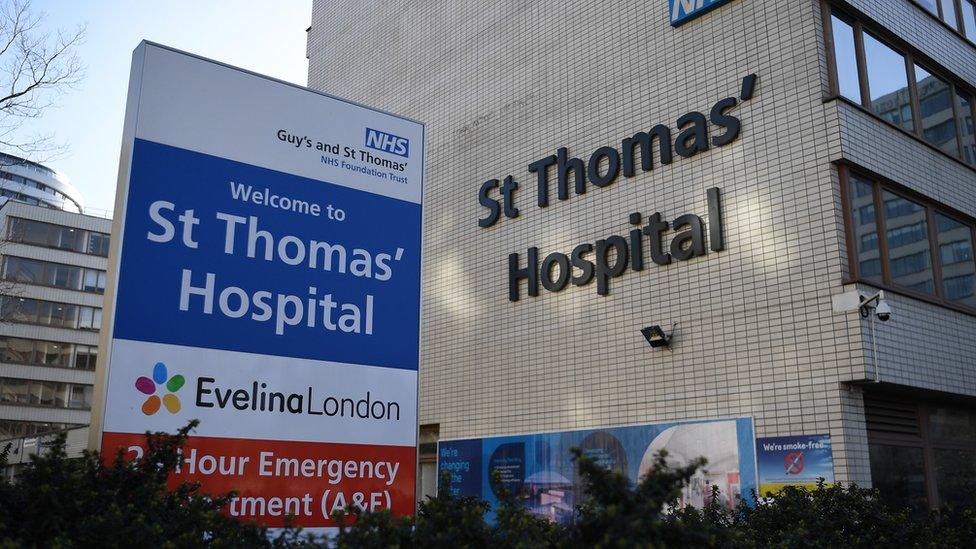
The woman has been transferred to a specialist NHS centre at Guy's and St Thomas' Hospital
A woman who flew into London from China a few days ago is being treated for coronavirus, bringing the total number of UK cases to nine.
Chief medical officer Chris Whitty said the woman was transferred to a specialist NHS centre at Guy's and St Thomas' in central London.
Prof Whitty said the patient had contracted the virus in China.
Sources say she developed symptoms after landing at Heathrow, called NHS 111 and then tested positive.
It comes after Prof Paul Cosford, from Public Health England, earlier told the BBC that more UK cases were "highly likely".
Meanwhile, all 83 people being held in quarantine at Arrowe Park Hospital in the Wirral have been told their final set of test results for the coronavirus have come back negative, confirming they are free of the virus.
It is expected they will leave the accommodation on Thursday morning, having spent two weeks there in quarantine.
Earlier, British businessman Steve Walsh, one of the nine UK cases of coronavirus, left hospital having fully recovered.
Mr Walsh, a 53-year-old scout leader from Hove in East Sussex, now posed "no risk to the public", NHS England said.
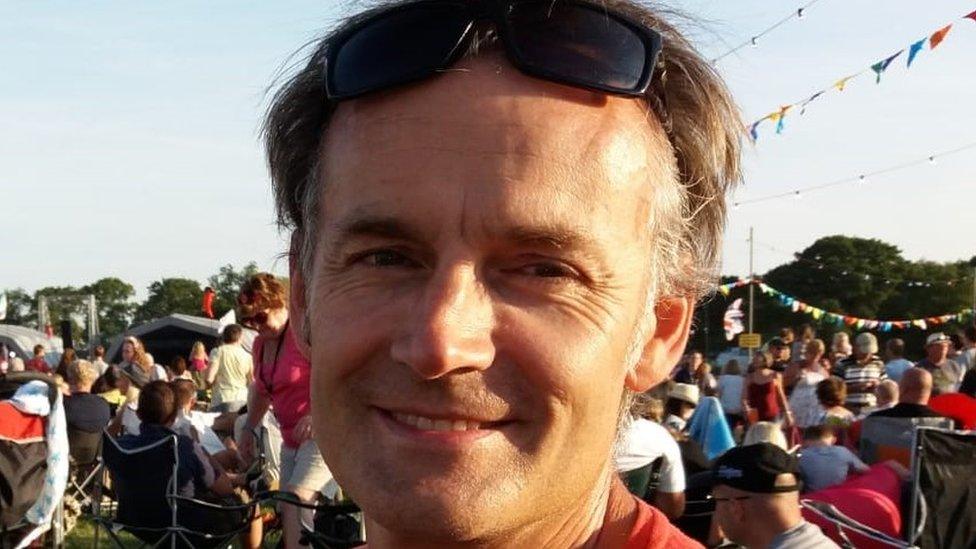
Mr Walsh contracted coronavirus on a business trip to Singapore and unknowingly passed it on to 11 other people
He was the third case of the virus to be confirmed in the UK, following two Chinese nationals testing positive in York.
Mr Walsh contracted coronavirus on a business trip to Singapore and unknowingly passed it on to 11 other people - five of whom then returned to the UK.
Two of them are known to be GPs.
Officials know the pair worked at a nursing home, Worthing Hospital A&E and two GP practices between them.
Public Health England confirmed on Wednesday it has traced and advised all close contacts of the two GPs, including about 12 patients.
A total of 1,750 people in the UK have tested negative for the virus.
Coronavirus in the UK: Five things you need to know about Covid-19

What are the symptoms of coronavirus and what can help stop its spread?
The main signs of infection are fever (high temperature) and a cough as well as shortness of breath and breathing difficulties.
Frequent hand washing with soap or gel, avoiding close contact with people who are ill and not touching your eyes, nose and mouth with unwashed hands, can help cut the risk of infection.
Catching coughs and sneezes in a tissue, binning it and washing your hands can minimise the risk of spreading disease.
Anyone experiencing symptoms, even if mild, after travelling from mainland China, Thailand, Japan, Republic of Korea, Hong Kong, Taiwan, Singapore, Malaysia or Macau, is advised to stay indoors and call the NHS 111 phone service.

Earlier, Prof Cosford, from Public Health England, said people returning to the UK from travelling abroad could bring in further cases of coronavirus.
There were a number of "countries of concern", he said.
Prof Neil Ferguson, infectious disease expert from Imperial College London, told the BBC he thought new cases of the virus could still rise.
"I think we're in the early phases of a global pandemic at the moment," he said.
Prof Ferguson added it was likely that only one in three cases coming into the UK was being picked up.
The overall number of infections is more than 44,000 on mainland China, with cases in more than 20 countries.
The World Health Organization said the number of newly-confirmed cases reported in China had stabilised, but it cautioned that the virus remained a threat.
"This outbreak could still go in any direction," director-general Dr Tedros Adhanom Ghebreyesus said in a briefing on Wednesday.
He said the WHO was developing a masterplan to tackle the virus, which would look at diagnostics and treatments.
A vaccine could be ready for human trials in three months from now, the briefing was told.
In Spain, the world's largest mobile phone showcase, Mobile World Congress, due to be held in Barcelona from 24 to 27 February, has been cancelled over coronavirus concerns.
On Tuesday, the World Health Organization said the official name for the disease caused by the coronavirus is Covid-19.

Have you been affected by any of the issues raised here? You can get in touch by emailing haveyoursay@bbc.co.uk, external.
Please include a contact number if you are willing to speak to a BBC journalist. You can also contact us in the following ways:
WhatsApp: +44 7756 165803, external
Tweet: @BBC_HaveYourSay, external
Send pictures/video to yourpics@bbc.co.uk, external
Please read our terms of use and privacy policy
- Published12 February 2020

- Published12 February 2020
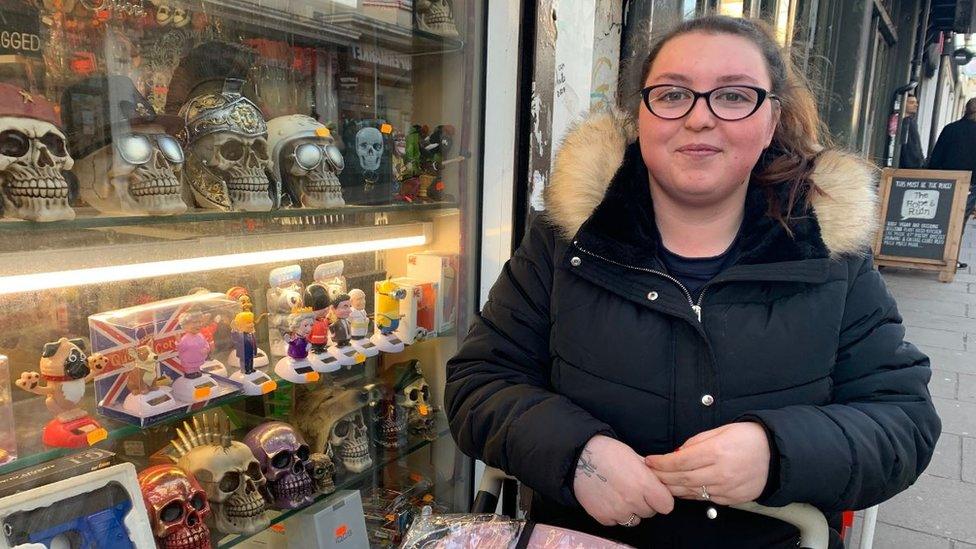
- Published11 February 2020
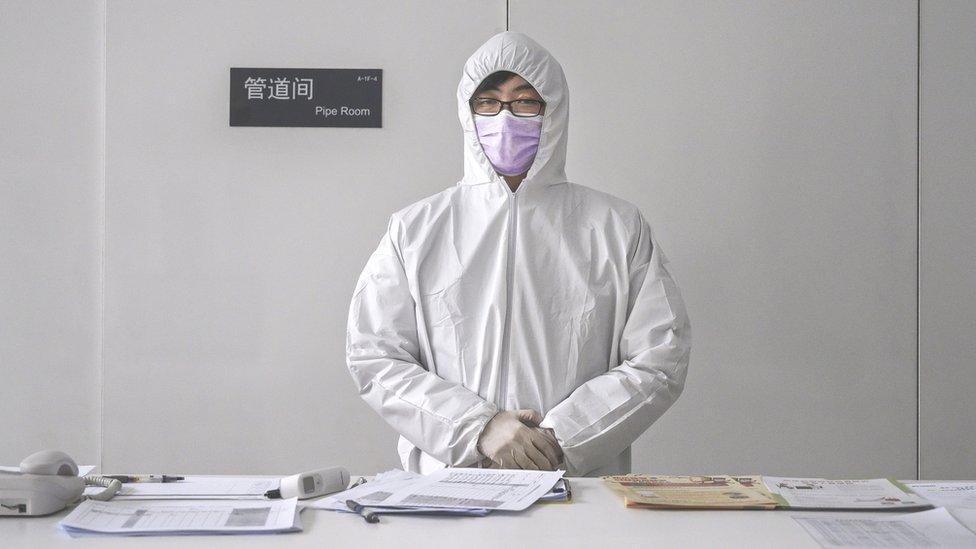
- Published11 February 2020
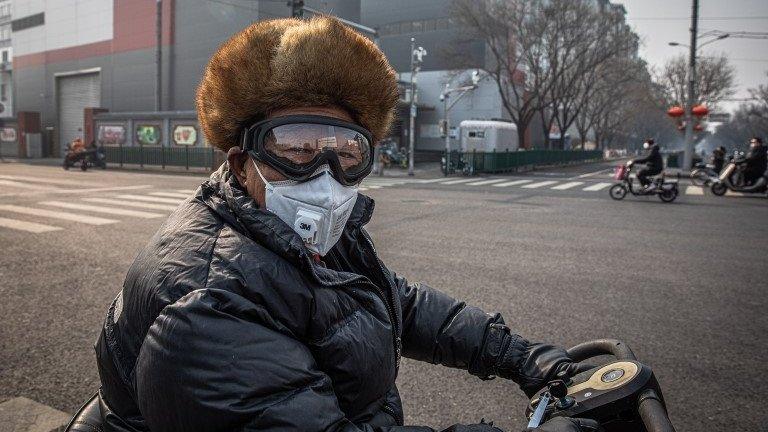
- Published11 February 2020
